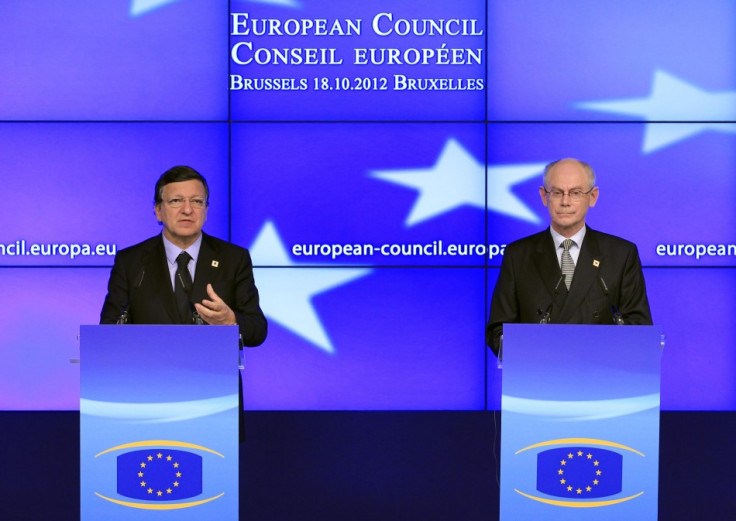EU Moves Closer to Eurozone Single Banking Supervisor
Stricter vigilance mechanism to be in place

European Union (EU) leaders have agreed to adopt a legal framework for a single banking supervisor by the end of the year, which is seen as a first step towards an effective banking union.
The overall responsibility would be entrusted to the European Central Bank (ECB) which will have the power to supervise the activities of any bank within the 17-nation eurozone.
"Once this is agreed, the single supervisory mechanism could probably be effectively operational in the course of 2013," said Herman Van Rompuy, president of the European Council.
The new supervisory powers enable the ECB to intervene early to avoid systemic and dangerous accumulation of a bank's debts. The European Stability Mechanism (ESM), the new permanent rescue fund, would be able to directly inject money into struggling banks without adding to the particular country's sovereign debts.
Starting with banks receiving state aid, all the 6,000 banks in the eurozone would be placed under the supervision of the ECB by 2014. EU officials said large cross-border banks would also be brought under the ECB gradually.
"The ECB will be able to intervene if needed in any bank in the euro area," said European Commission President Jose Manuel Barroso.
However, German Chancellor Angela Merkel said the agreement meant "banks must be supervised in a differentiated way. That means that some will be direct... at the ECB level and others indirectly, via the national authorities".
The Brussels summit did not discuss financial assistance to Spain on which a decision is expected in a couple of weeks.
"We are on track to solve the problems that for too long have been paralysing the eurozone and made it vulnerable," said French President Francois Hollande.
"If the December European summit confirms the decisions we took, if Greece finds a lasting solution, if Spain recovers funding mechanisms, then we will be done with a situation which weighed on markets and on the confidence in the eurozone".
Meanwhile, in Athens, as many as 20,000 protesters clashed with the police bringing the country to a standstill.
© Copyright IBTimes 2025. All rights reserved.





















